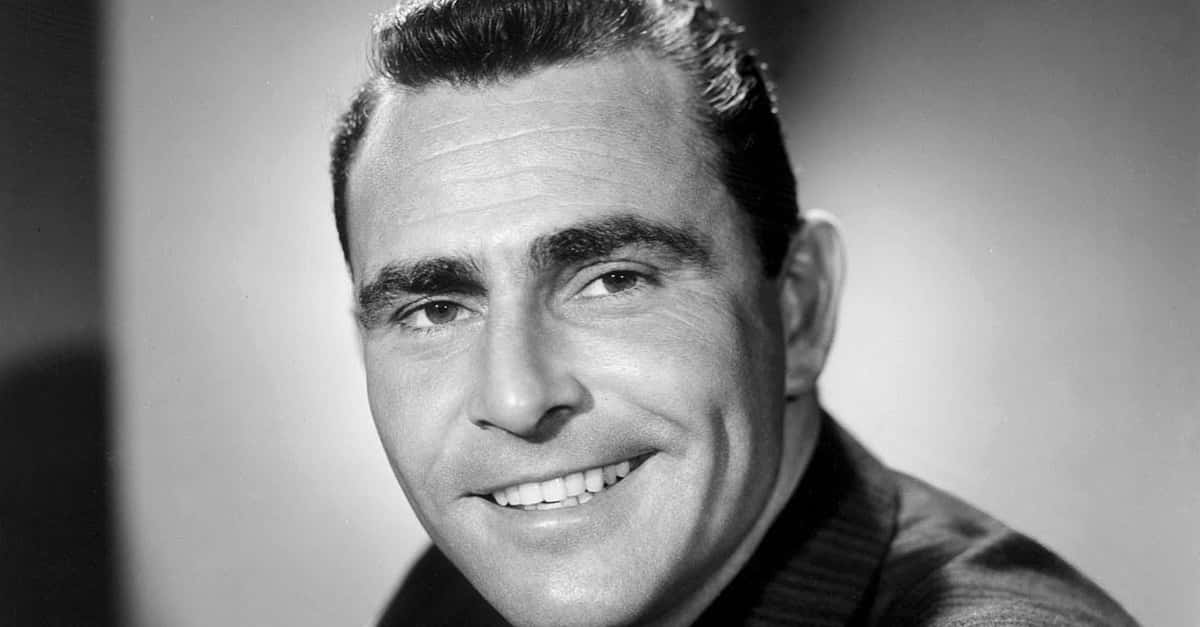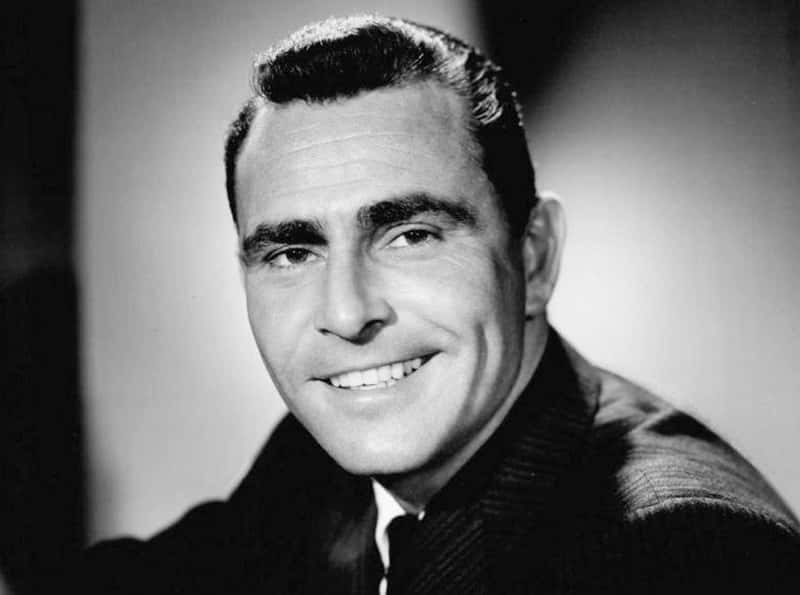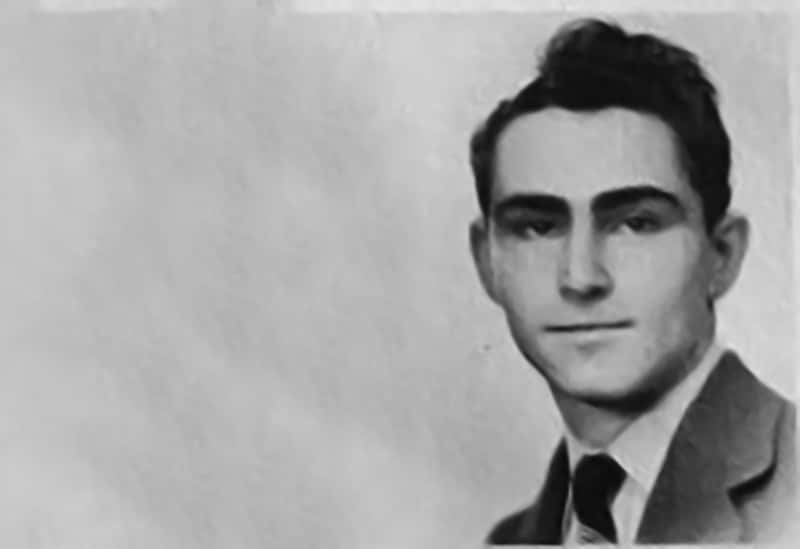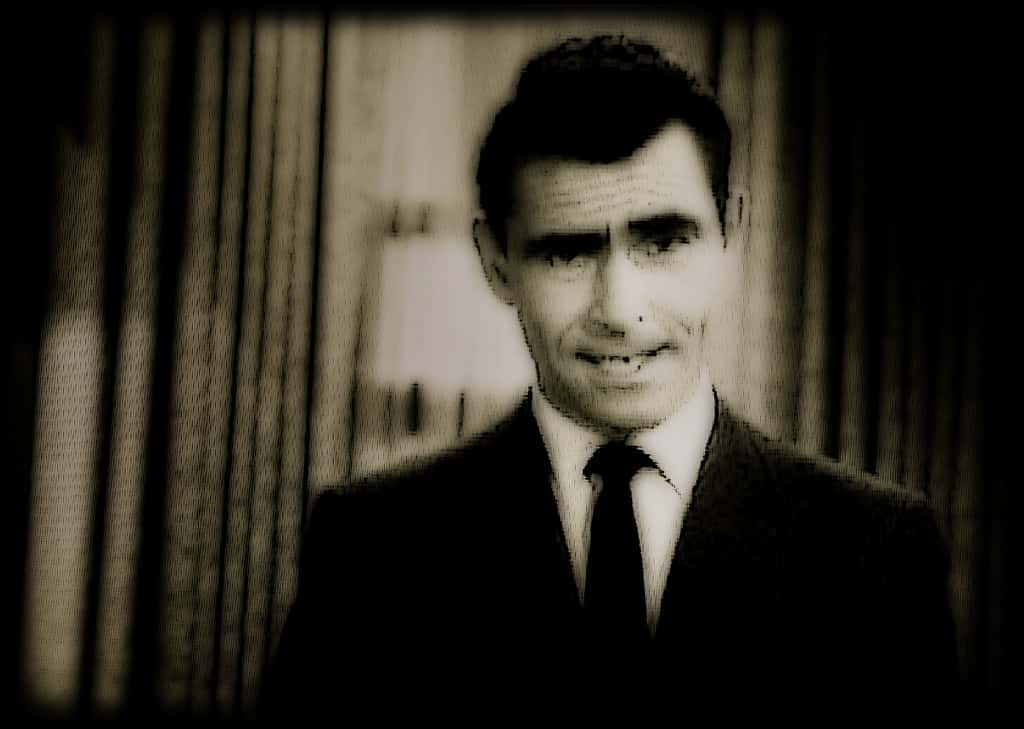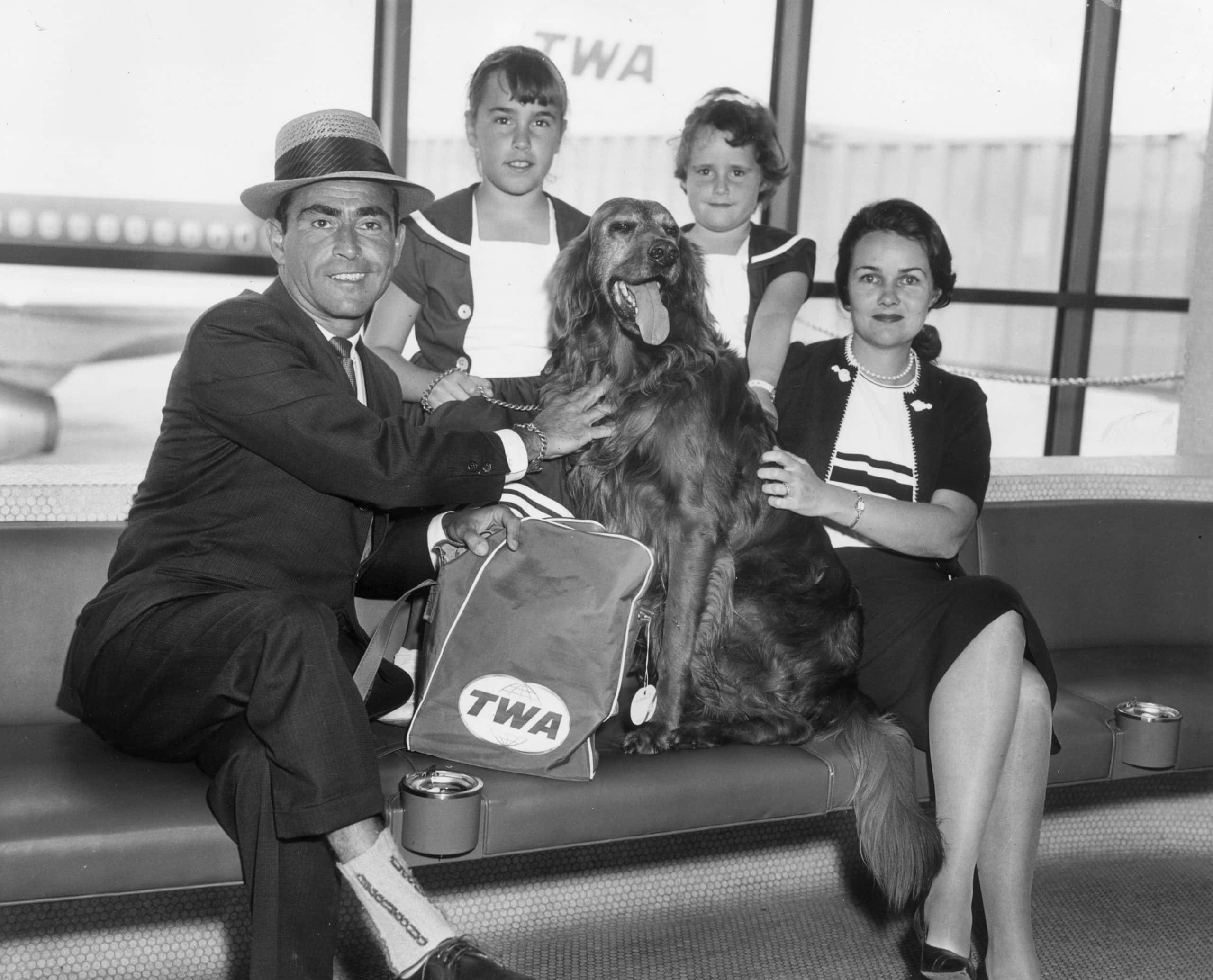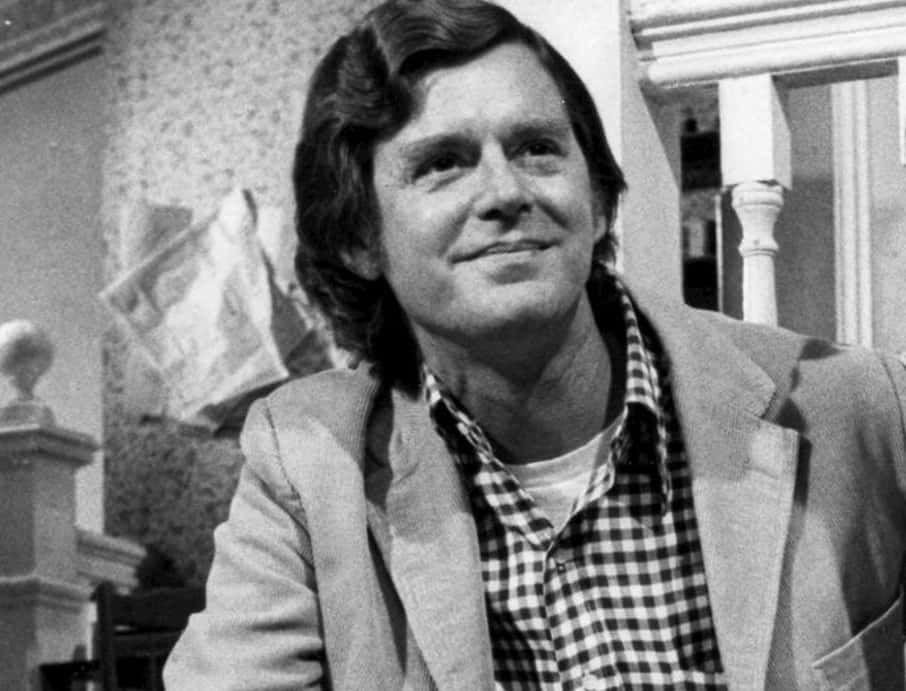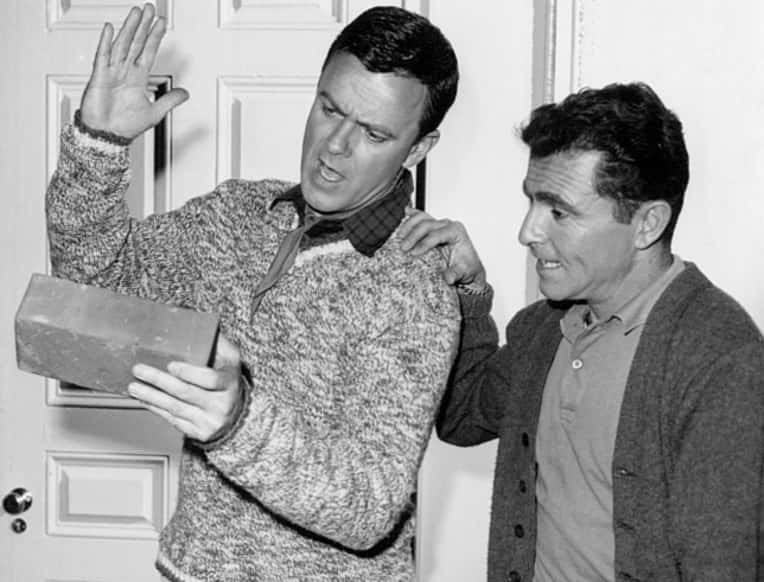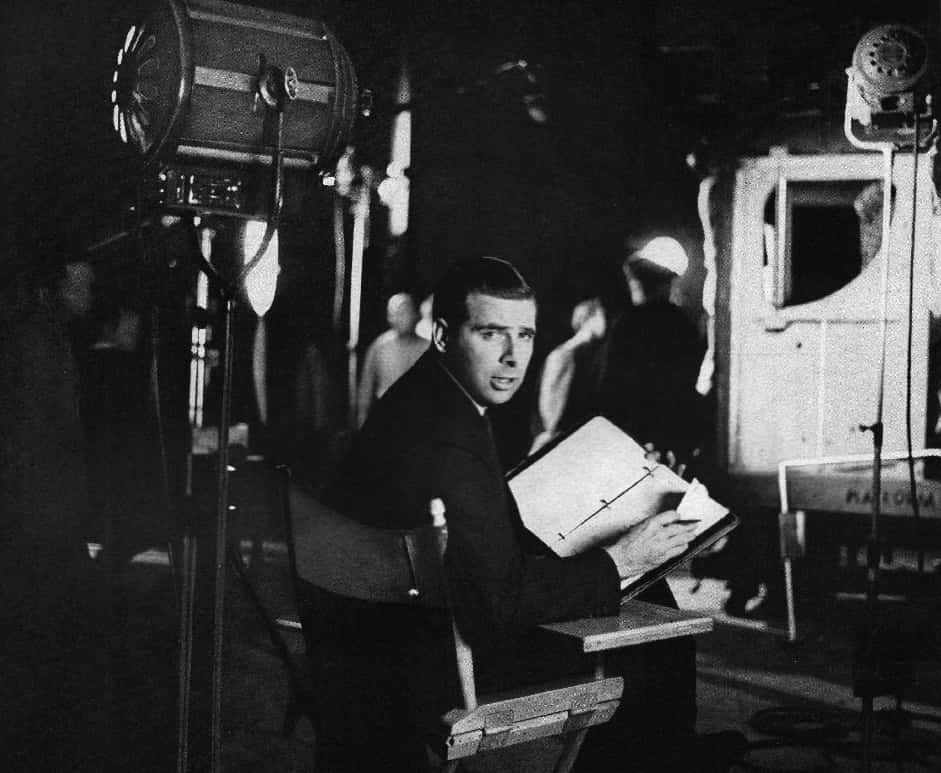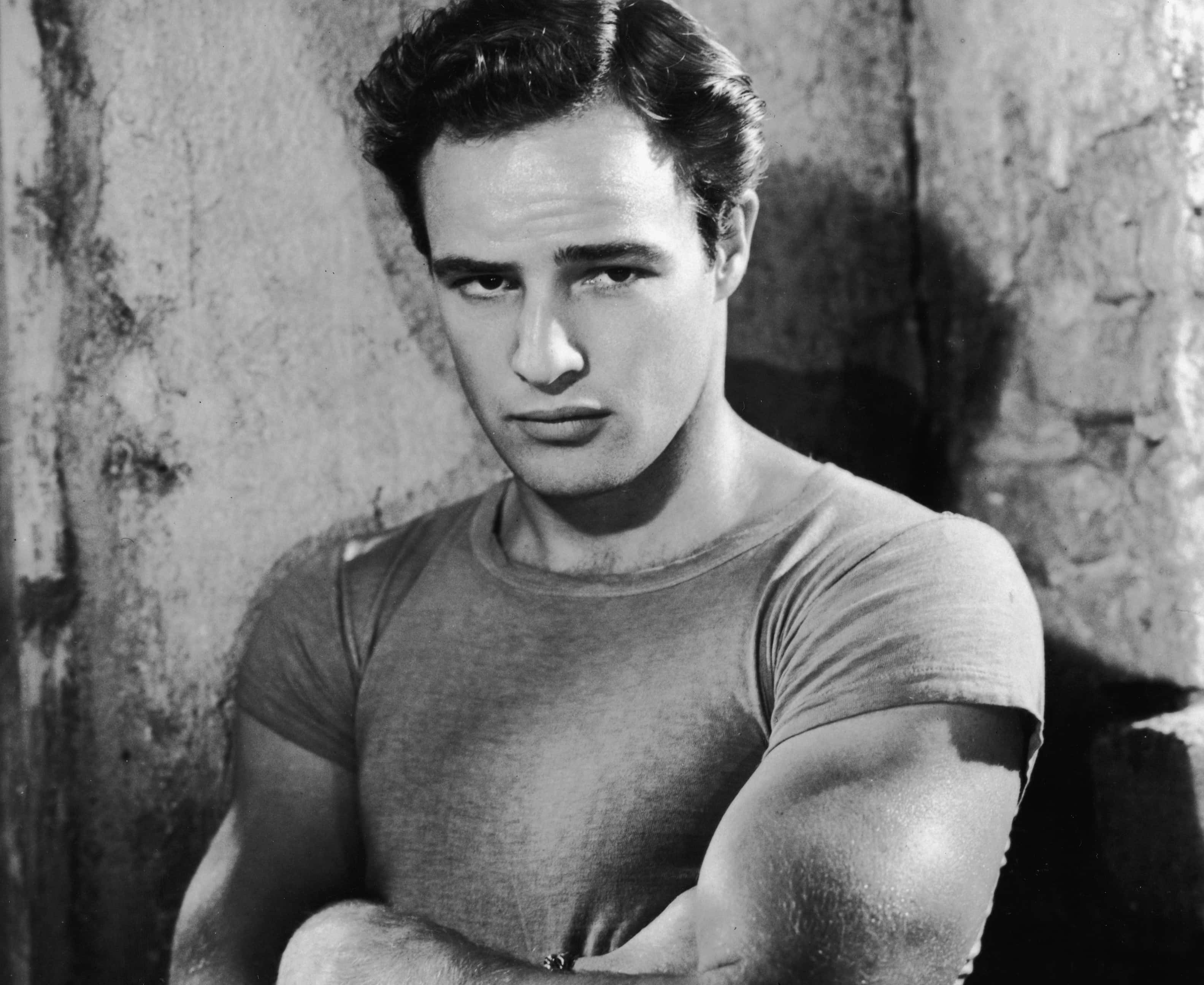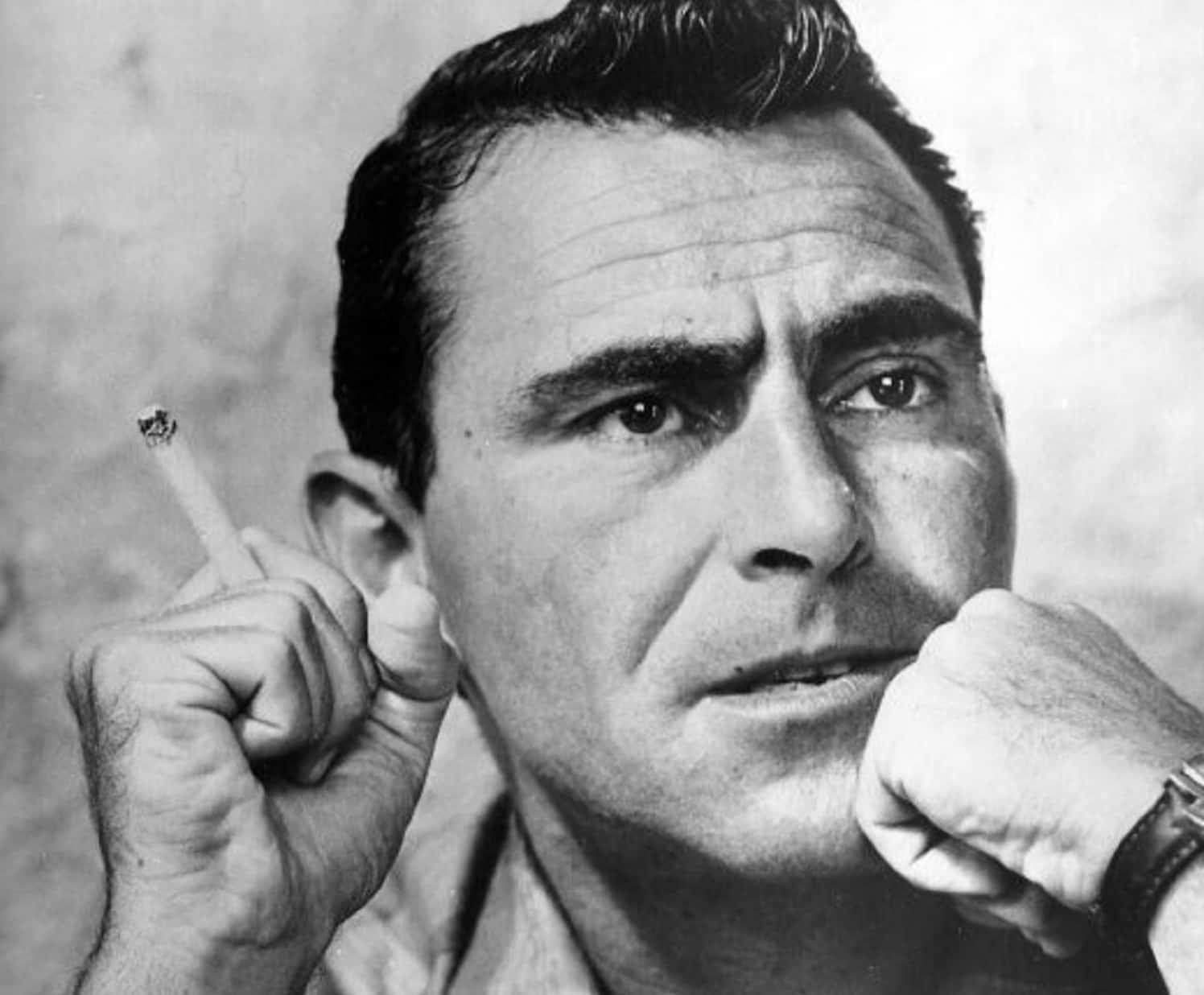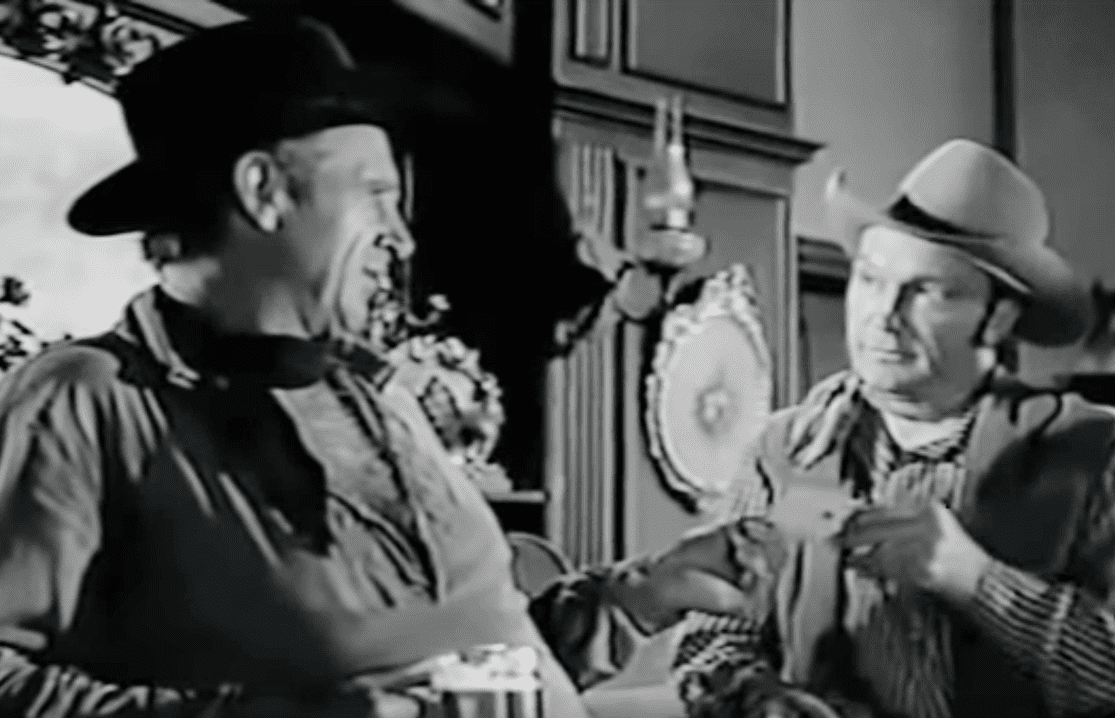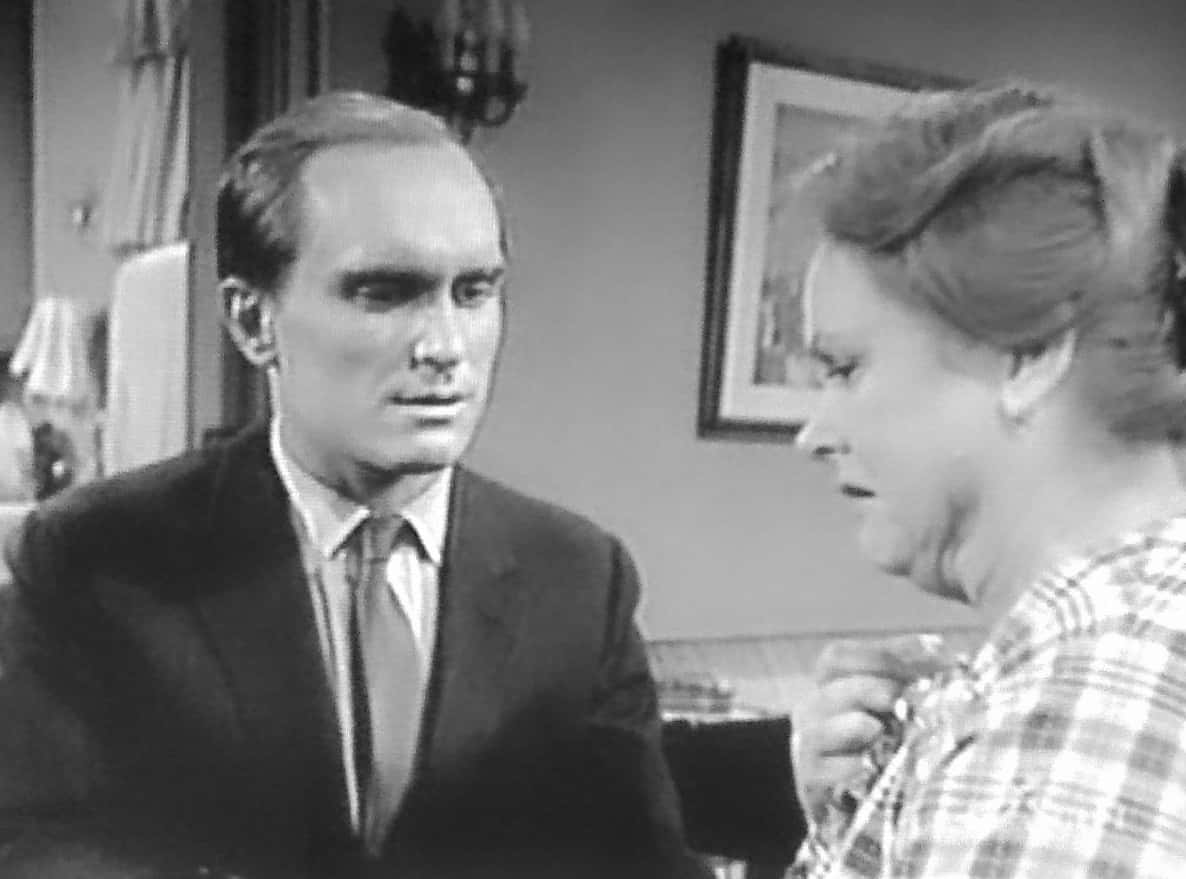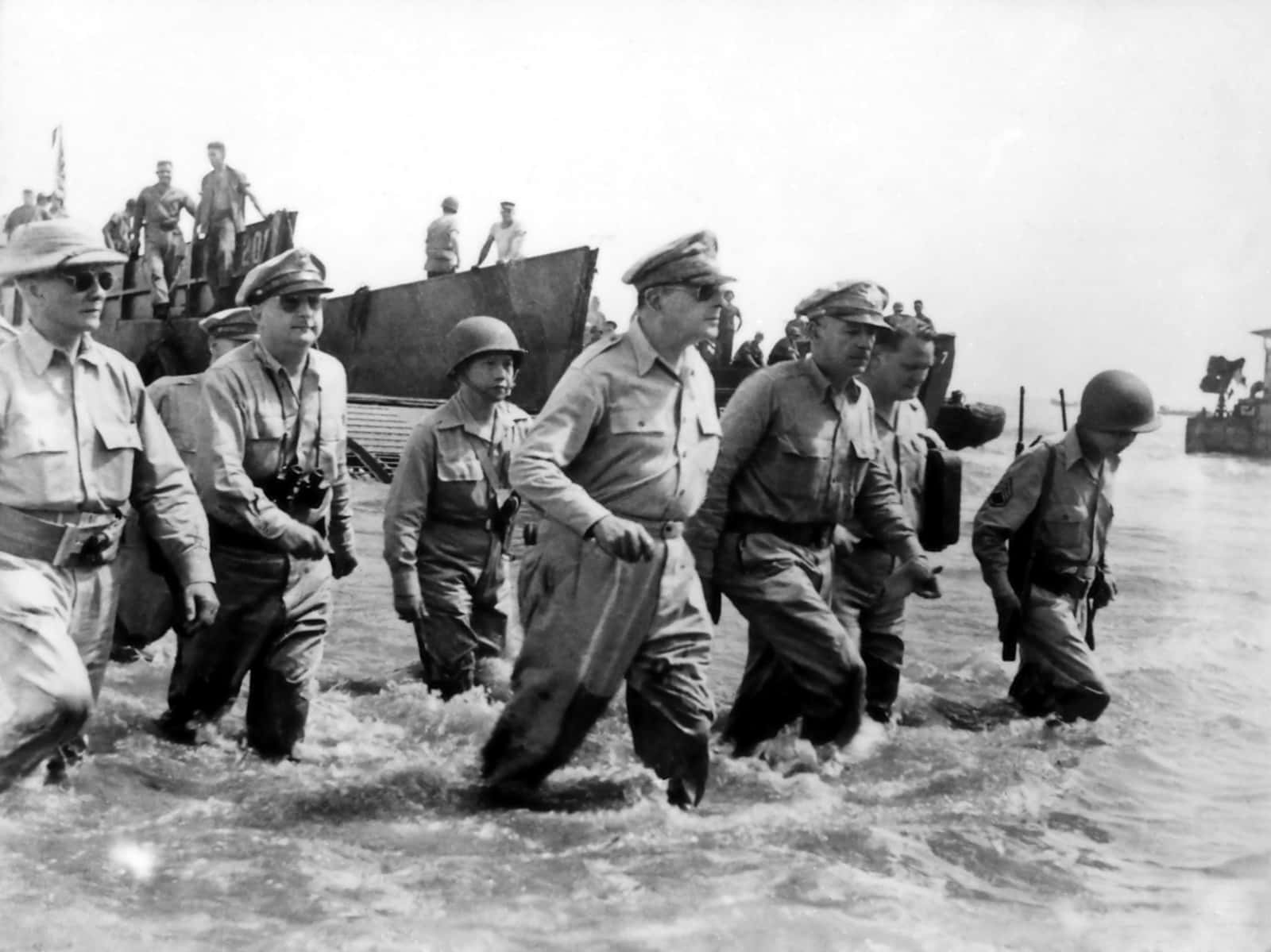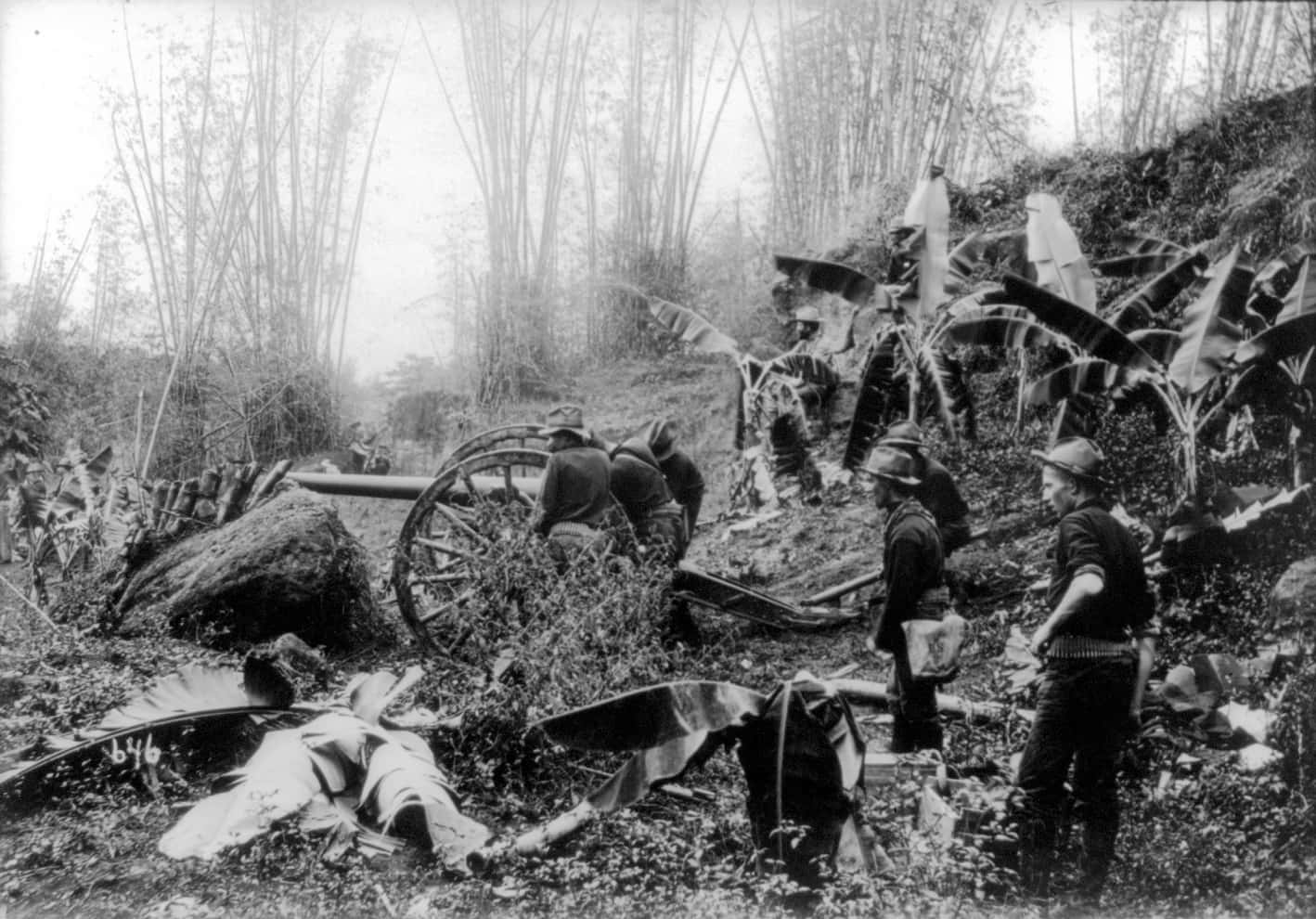“Writing is a demanding profession and a selfish one. And because it is selfish and demanding, because it is compulsive and exacting, I didn't embrace it. I succumbed to it.”
One of the greatest television writers in American history, Rod Serling made an immortal name for himself with The Twilight Zone. It would be foolish to understate the impact that Serling’s masterpiece has had on television. But even outside of that iconic show, Serling provided film and television scripts which often stood head and shoulders above his peers. So how did Serling become the man that he was? What into his writing? What were his writing highlights? Find out more below!
Facts About Rod Serling
1. Welcome to the Earth Zone
Serling was born on Christmas Day, 1924 in Syracuse, New York. He was the second son of Sam and Esther Sterling and he spent much of his childhood in the city of Binghamton, New York.
2. Dialogue? What’s That?
It’s a normal thing for some children to be especially talkative and excitable, but Serling was an exceptional case. One incident in his life involved a two-hour drive with his family from Binghamton to Syracuse. As young Serling began to talk about topics that interested him, he became so enthusiastic that he didn’t even bother letting anyone else have a word in. His family decided to stay silent and see if Serling would notice. He didn't, and ended up chattering for the entire drive without stopping.
3. Hear Me Speak
Not surprisingly, Serling was encouraged by his seventh-grade English teacher to go into public speaking. Serling took this to heart, and in high school, he was not only a member of the debate team, but he also spoke at his graduation ceremony. We can only assume that he terrified half the audience while smoking a cigarette and musing about that fifth dimension!
4. Serling Wants You!
While Serling was in high school, the Second World War was raging across the globe. Editing his high school newspaper, Serling was fervently in favor of fighting, even suggesting that his classmates enlist and join in. He intended to do the same but was persuaded to complete his education by one of his teachers. Reminded that he would eventually come back from the war and need a career, Serling delayed enlisting until the day after his graduation in 1943.
5. Writer's Kraft
Serling first found fame as a writer for television with his work on Kraft Television Theatre. This was an anthology series focused on dramatic stories. As you know full well, anthology series would prove highly lucrative for Serling’s style of storytelling!
 American Masters (TV Series) Rod Serling: Submitted for Your Approval (1995), PBS
American Masters (TV Series) Rod Serling: Submitted for Your Approval (1995), PBS
6. When the Fame Began
Serling’s first significant work with Kraft Television Theatre, and indeed his whole career, was titled “Patterns.” The teleplay focused on two executives, one old and past his prime, one young and on the rise. After 71 scripts, “Patterns” gave Serling the breakthrough he needed, as well as his very first Emmy Award!
 Patterns, Kraft Television Theatre (1955), NBC
Patterns, Kraft Television Theatre (1955), NBC
7. The Nickname that Aaron Sorkin Wishes He Had
Throughout his career, Serling developed a reputation for being highly opinionated on a wide variety of topics. His eye was drawn to several topics, such as racism and war, which producers were reluctant to deal with in entertainment (more on that later). As a result, Serling developed a fury against censorship and would spend years pushing back against what was allowed and not allowed to be shown onscreen. This stubbornness led to Serling becoming known as “the angry young man of Hollywood.”
8. This is Lighter Country
Aside from the protests against the controversial nature of many of his scripts, Serling also faced censorship from the studios for maddeningly frivolous reasons. In one example, Serling gave a character in “Requiem for a Heavyweight” the line “Got a match?” when asking to light their cigarette. The studio stepped in and had him change the line since one of their sponsors happened to be Ronson, a company which specialized in making lighters.
 Playhouse 90 (TV Series) Requiem for a Heavyweight (1956), CBS
Playhouse 90 (TV Series) Requiem for a Heavyweight (1956), CBS
9. The Pen is Mightier Than the Sword
After he was discharged from the US Army, Serling enrolled at Antioch College in Yellow Springs, Ohio. Initially, Serling majored in physical education (despite a permanent knee injury from the War), but he was drawn towards broadcasting instead. Serling would switch his major to writing, and he graduated from college with a Bachelor of Arts in 1950.

History's most fascinating stories and darkest secrets, delivered to your inbox daily.
10. Love at Third or Fourth Sight?
While he was at Antioch College, Serling met a fellow student named Carolyn Louise Kramer. At the time, Serling had developed a reputation as a ladies’ man of sorts, and this caused Kramer to reject him when he asked her out. Eventually, much to Serling’s undoubted relief, she changed her mind. The two of them would marry on July 31, 1948, and they remained married until Serling’s death. Two daughters, Jodi and Anne, would be born to them.
11. Going the Distance
Serling embarked on nearly a year of paratrooper training after he enlisted in the US military. During that time, Serling took up boxing as a way to get out the aggression that came along with the rigorous military lifestyle. Competing in the flyweight class, Serling fought in at least 17 bouts. He managed to fight his way to the second round of the military division finals before being knocked out.
12. Too Small?!
Boxing wasn’t the first time that Serling had engaged in sports. He always had an eye for athletics and was a particularly enthusiastic player of tennis, both on the court and on the table. However, due to his short height of 5'4", his attempt to join the varsity football team during his youth was unsuccessful.
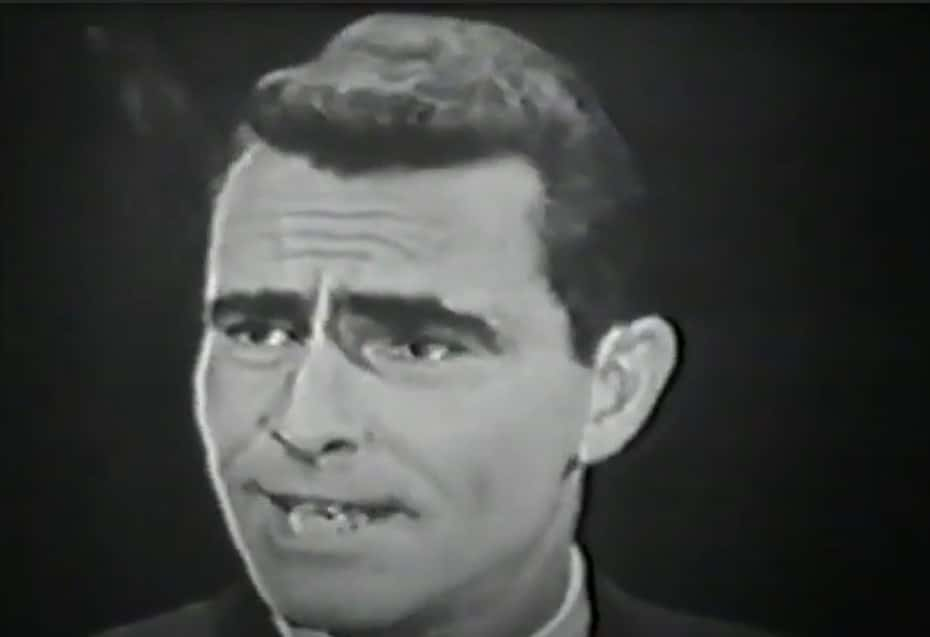 American Masters (TV Series) Rod Serling: Submitted for Your Approval (1995), PBS
American Masters (TV Series) Rod Serling: Submitted for Your Approval (1995), PBS
13. From One Anthology to Another
Kraft Television Theatre wasn’t the only anthology series that Serling worked for during his early years as a TV writer. Playhouse 90 was a series whose hour-long teleplays were broadcast live. The series premiered with an episode written by Serling himself, based on the book Forbidden Areas. It aired on October 4, 1956, and starred Charlton Heston.
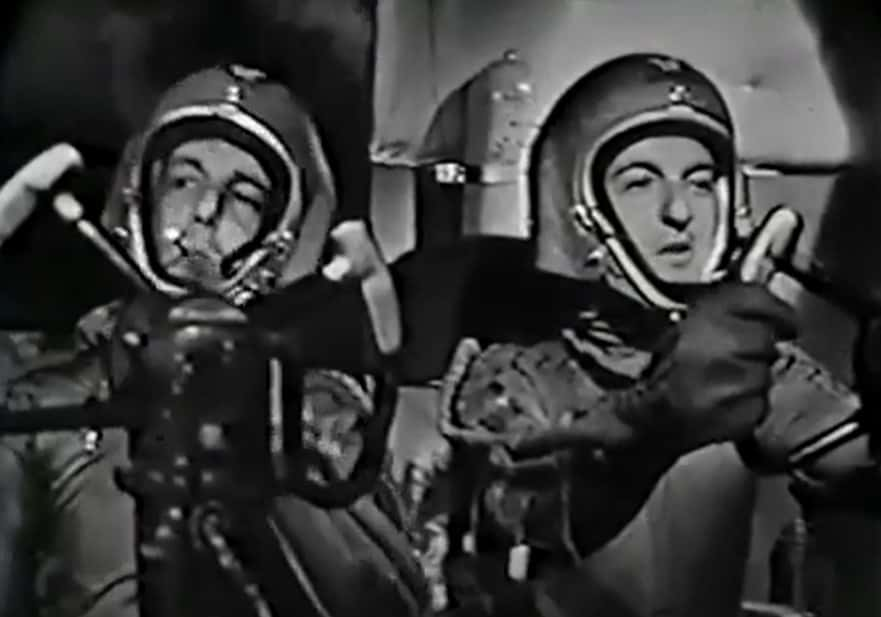 Playhouse 90 (TV Series) Forbidden Area (1956), CBS
Playhouse 90 (TV Series) Forbidden Area (1956), CBS
14. Congratulations!
Since he had been very active volunteering with radio stations during his college years, Serling initially found work in that medium. He was actually still attending classes when he achieved his first measure of success as a writer. Out of thousands of scripts responding to an annual scriptwriting contest hosted by the radio program Dr. Christian, Serling’s script titled “To Live a Dream” was chosen. Serling won $500 and was able to take his new wife to the awards broadcast on May 18, 1949.
 American Masters (TV Series) Rod Serling: Submitted for Your Approval (1995), PBS
American Masters (TV Series) Rod Serling: Submitted for Your Approval (1995), PBS
15. Far-Reaching Contacts
Serling wasn’t the only winner of Dr. Christian’s scriptwriting contest. One of the other winners was a man named Earl Hamner Jr., who had actually won the scriptwriting contest several times before that. Years later, when Serling was busy with The Twilight Zone, Hamner Jr. would become one of that series’ main writers.
16. What’s a Boxer to Do?
One of Serling’s first major successes as a writer was the teleplay “Requiem for a Heavyweight.” Released as an episode for Playhouse 90, the teleplay focused on an aging boxer who is deemed too unwell to fight again. Written by Serling, it starred Jack Palance as the boxer in question, Kim Hunter as a sympathetic employment agency worker, Keenan Wynne as the boxer’s manager, and Wynne’s father Ed as the boxer’s cut man.
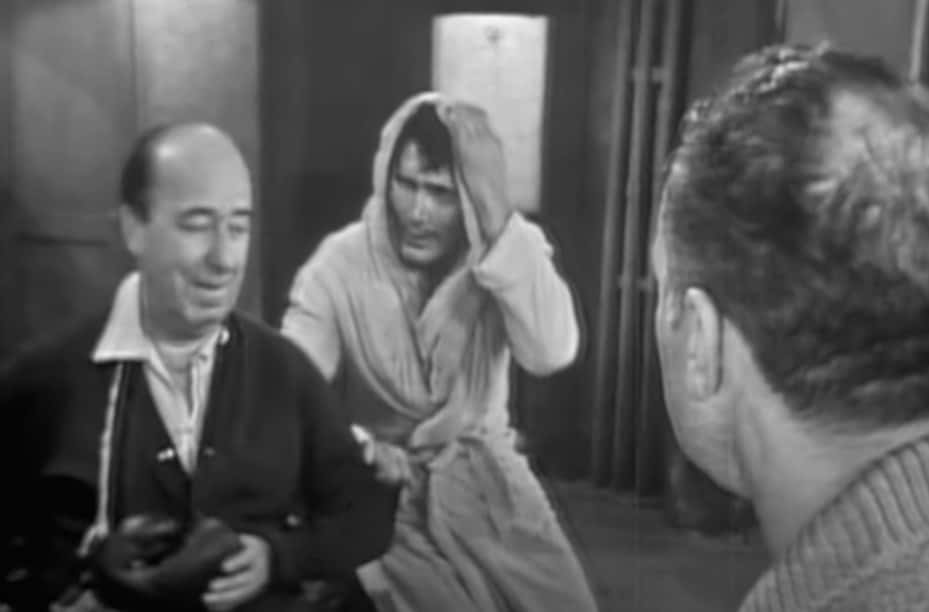 Playhouse 90 (TV Series) Requiem for a Heavyweight (1956), CBS
Playhouse 90 (TV Series) Requiem for a Heavyweight (1956), CBS
17. Early Days, Big Futures
Serling’s “Requiem for a Heavyweight” has often been hailed as a highlight of American live drama television. Serling won his second Emmy for writing the teleplay, and the episode was remade into a 1962 film starring Anthony Quinn, Jackie Gleason, and Mickey Rooney. Not only that, three different countries produced their own adaptations of “Requiem for a Heavyweight,” including a British version which starred a young Sean Connery and an even younger Michael Caine!
 Requiem for a Heavyweight (1962), Columbia Pictures
Requiem for a Heavyweight (1962), Columbia Pictures
18. Maybe He’s Right!
Even in an era where the anthology series was a lucrative genre, Serling fought an uphill battle to get The Twilight Zone made. What ultimately convinced CBS of the series’ potential was when they took the script that Serling had meant to use as a pilot for The Twilight Zone and instead used it as an episode in the anthology series The Westinghouse Desilu Playhouse, produced by famous celebrity couple Lucille Ball and Desi Arnaz. The episode was hugely popular and convinced CBS that Serling might be on to something after all.
 Westinghouse Desilu Playhouse (TV Series) The Time Element (1958), Desilu Productions
Westinghouse Desilu Playhouse (TV Series) The Time Element (1958), Desilu Productions
19. Half a Dozen Accolades, Please!
Throughout his career, Serling won six Emmy Awards and was nominated for three others. Of the ones that he did win, two were earned for his work on The Twilight Zone (which also earned Serling his only Golden Globe), while the others were for the individual dramas “Requiem for a Heavyweight,” “Patterns,” “It’s Mental Work,” and “The Comedian.”
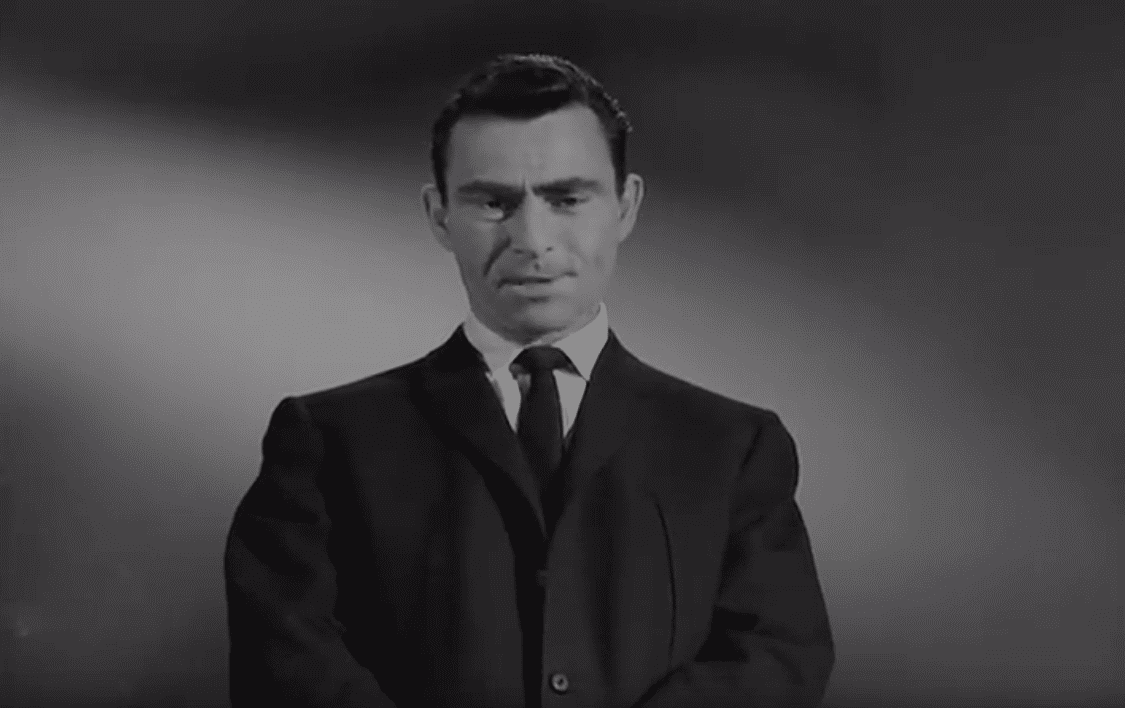 The Twilight Zone (1959-1964), CBS
The Twilight Zone (1959-1964), CBS
20. Big Bro
Serling wasn’t the only person in his family to go into the world of writing. His older brother, Robert Serling, became an acclaimed novelist and aviation writer. During his life, Robert wrote eight books of fiction and sixteen nonfiction. Unlike his brother, Robert lived a long life, passing away in 2010 due to pancreatic cancer. He was 92 years old.
21. Where’s My Auteur Theory!?
One reason why Serling wanted his own show was his frustration regarding censorship and a lack of creative control. This became essential to him when it came to The Twilight Zone. The amount of power that Serling had over the series was almost unprecedented for a man in his position, and he regularly had to fight battles to win over the executives at CBS.
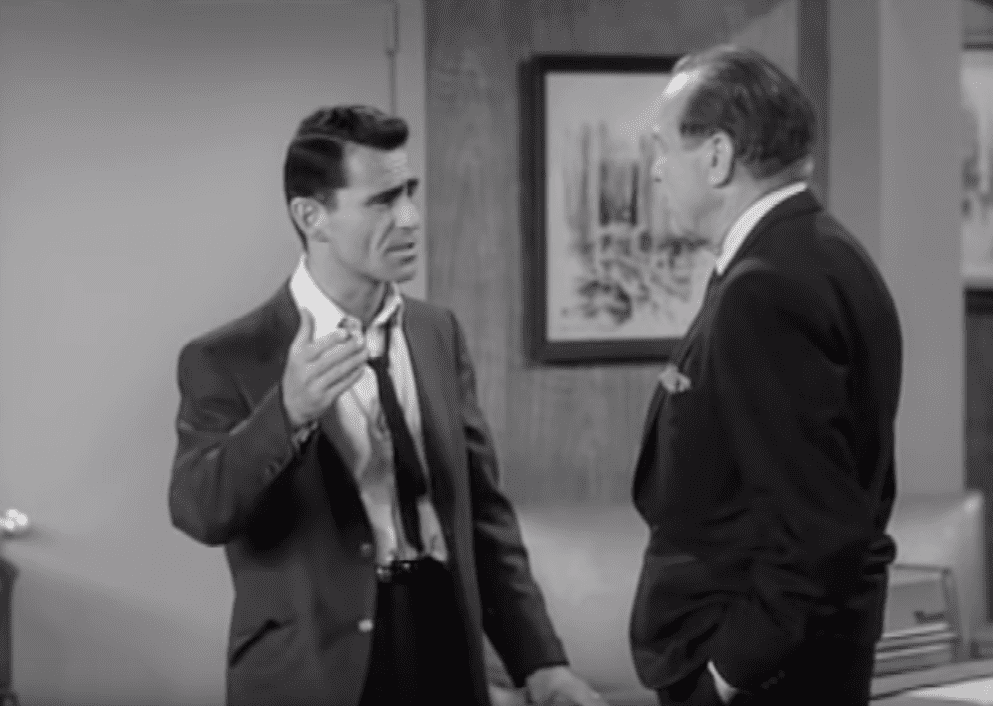 The Twilight Zone (1959-1964), CBS
The Twilight Zone (1959-1964), CBS
22. That’s Trippy!
Even when he worked exclusively for radio during his pre-television days, Serling was coming up with surreal, thought-provoking scripts. One idea which was produced for the radio was a weekly radio show titled Adventure Express. The radio show followed a boy and girl traveling around the country with their uncle, visiting one town after another on a train. This doesn’t sound too surreal, we know, but this story was tame compared with Serling’s original idea. In his original pitch, the boy and girl would have been the ghosts of two children killed during the Second World War, commenting on how the future looks! Admit it, you’re hearing the theme from The Twilight Zone in your head right now!
 American Masters (TV Series) Rod Serling: Submitted for Your Approval (1995), PBS
American Masters (TV Series) Rod Serling: Submitted for Your Approval (1995), PBS
23. Five or Six? It’s Important!
When Serling originally recorded the opening narration for the first episode of The Twilight Zone, he had a rather funny hurdle to jump. A CBS executive listening to him record his line stopped him after Serling talked about a “sixth dimension.” The executive had a bit of scientific learning and asked Serling why he’d skipped the concept of a fifth dimension. Surprised, Serling admitted that he’d assumed there were five dimensions already. It was a sheepish man who corrected his narration to “fifth dimension” in order to stave off similar questions from his audience!
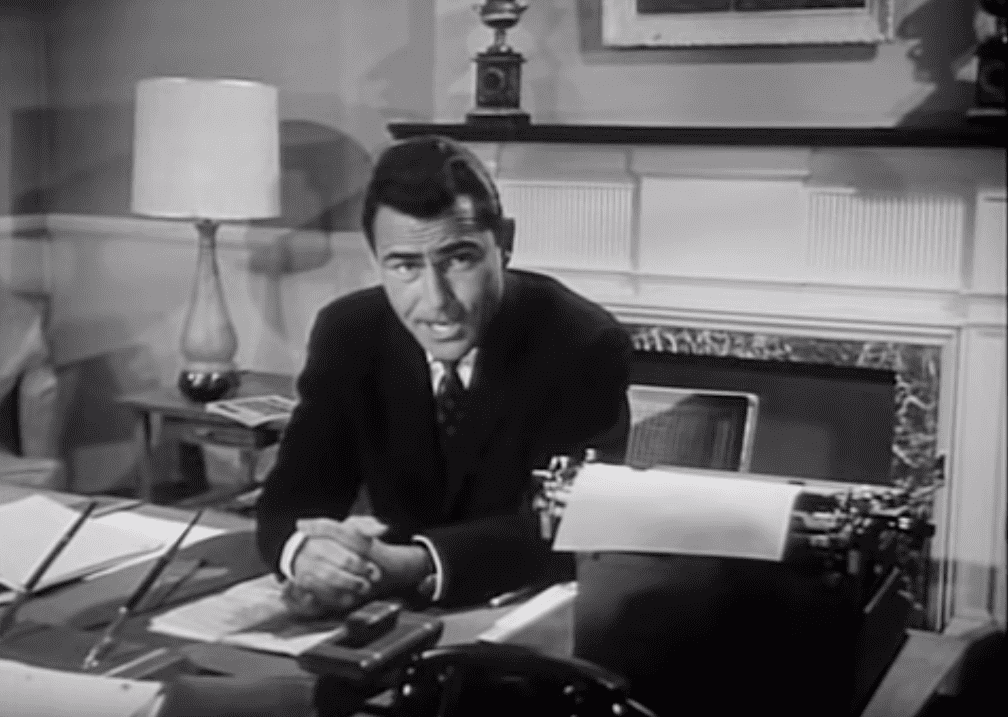 The Twilight Zone (1959-1964), CBS
The Twilight Zone (1959-1964), CBS
24. Where I Belong
One might wonder why Serling mostly kept to television writing throughout the majority of his career. According to an interview with the man himself, he admitted that he felt insecure about venturing into other mediums. He’d never really had much experience with theatre, and he expressed dissatisfaction with his film jobs, while television would constantly draw him back despite any stress he built up from the experiences.
 American Masters (TV Series) Rod Serling: Submitted for Your Approval (1995), PBS
American Masters (TV Series) Rod Serling: Submitted for Your Approval (1995), PBS
25. Salute!
For his services during the Second World War, Serling was awarded a variety of military decorations. These included a Bronze Star, a Purple Heart, and a Philippine Liberation Medal.
 American Masters (TV Series) Rod Serling: Submitted for Your Approval (1995), PBS
American Masters (TV Series) Rod Serling: Submitted for Your Approval (1995), PBS
26. Mutual Genius
To prove that the world can be a small place, Serling was close friends with yet another creator of a classic television series. This friend was none other than Gene Roddenberry, the man behind Star Trek. Roddenberry would read the eulogy at Serling’s funeral.
27. He Could Have Been the Writer! He Could Have Been Somebody!
One-Eyed Jacks has gone down in infamy as an ambitious project starring and directed by Hollywood legend Marlon Brando. What set it apart was just how contentious the production was behind the scenes, with several writers and directors coming and going until Brando took over more responsibilities and made it his passion project. One of the many people briefly attached to the project was Serling himself, and he would ultimately go uncredited for his work on the original screenplay.
28. As Long as I Keep My Creator Credit!
After Serling’s own version of The Twilight Zone, two revivals were attempted after Serling’s death. The first one first aired on CBS in 1985 with Charles Aidman and Robin Ward hosting it. The second one aired on UPN in 2002 with Forest Whitaker as the host. Sadly, for obvious reasons, we’ll never know what Serling would have thought of those revivals.
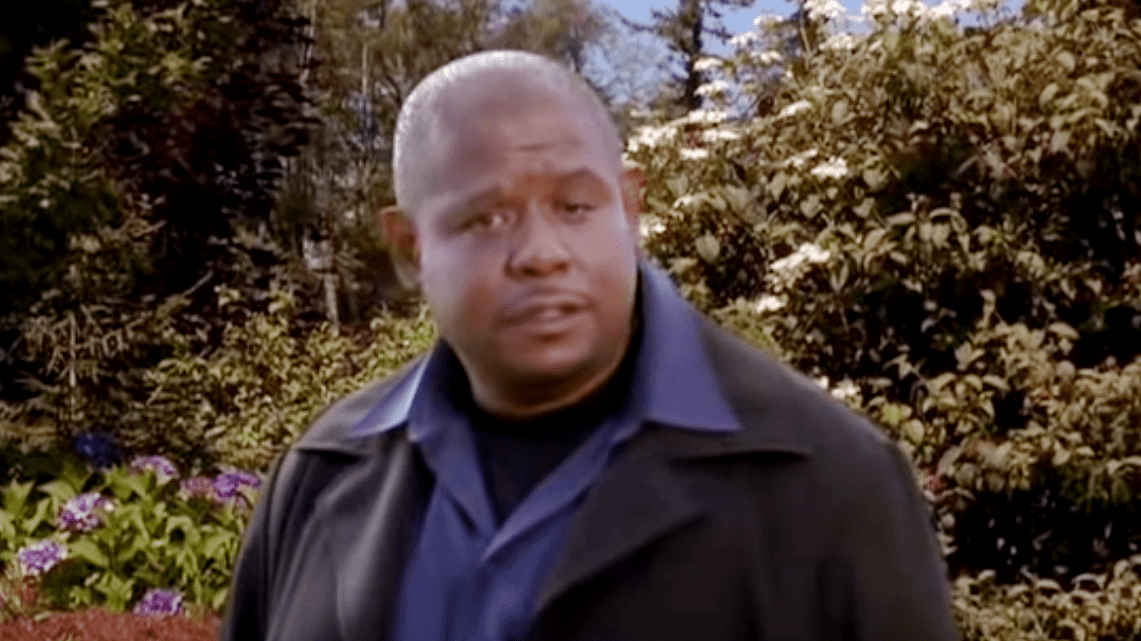 The Twilight Zone (2002–2003), New Line Television
The Twilight Zone (2002–2003), New Line Television
29. Take Notes, Shyamalan!
Although Serling didn’t specialize in film scripts, he did try his hand at several during his lifetime. The two most famous films that bear his name would arguably be Seven Days in May, a 1964 political thriller starring Kirk Douglas and Burt Lancaster, and the original Planet of the Apes, with Charlton Heston (given the twist ending of the latter film, we’re not surprised that Serling was involved).
30. Light Up!
An avid smoker, Serling was known to burn through five packs of cigarettes per day! Not surprisingly, this caused serious health problems down the line (more on that later).
31. Short-Lived Series
One of the first major projects which Serling embarked on after The Twilight Zone was a Western series called The Loner. Starring Lloyd Bridges (the father of actors Jeff and Beau Bridges), the series was described as “the thinking man’s Western” in terms of its style and content. Unfortunately, this caused serious friction with CBS, as they wanted a series which conformed to the Western genre, not something that stood out. Perhaps unsurprisingly, The Loner lasted just one season before it was canceled.
32. Taking it Personal
When it came to The Loner’s abrupt cancellation, Serling was particularly enraged. He considered it a betrayal by CBS, his former network for The Twilight Zone. Serling went to the press and denounced CBS for just wanting “violence” rather than a meaningful story beyond conventions. One publication quoted him as saying “If you want conventional Western, get a conventional writer.” We can’t really fault him on that logic, honestly.
 American Masters (TV Series) Rod Serling: Submitted for Your Approval (1995), PBS
American Masters (TV Series) Rod Serling: Submitted for Your Approval (1995), PBS
33. Cowards!
While he was with Playhouse 90, Serling heard of the horrific murder of Emmett Till, a young black boy whose only crime was smiling at a white woman in the south. Disgusted, he wrote a script which would tackle the south’s culture of racism and lynching of black people. However, the studio stepped in and refused to allow such a controversial subject to make it onscreen without serious distancing. As a result, the episode, which was titled “A Town Has Turned to Dust,” became instead focused on an old western town’s racism towards Mexicans instead. Though the episode was still praised for dealing with racism, Serling was livid about the edits forced on him, claiming that the studio had treated his script like they were “butchers.”
 Playhouse 90 (TV Series) A Town Has Turned to Dust (1958), CBS
Playhouse 90 (TV Series) A Town Has Turned to Dust (1958), CBS
34. I Need a Break
Of the 156 episodes of The Twilight Zone that were originally produced and aired, Serling wrote nearly 100 of them. That kind of workload left him so weary that he didn’t fight it when the show was finally canceled for good.
35. The Community of the 1960s
You might be wondering why we said “for good” in the above fact. Despite the loyal fanbase, the critical acclaim, and the long-lasting legacy that Serling’s The Twilight Zone received, it was only ever moderately successful when it was on for the first time. As a result, during the five years that it was produced, the show was actually canceled three times (the final time being when Serling didn’t bother fighting it out of exhaustion).
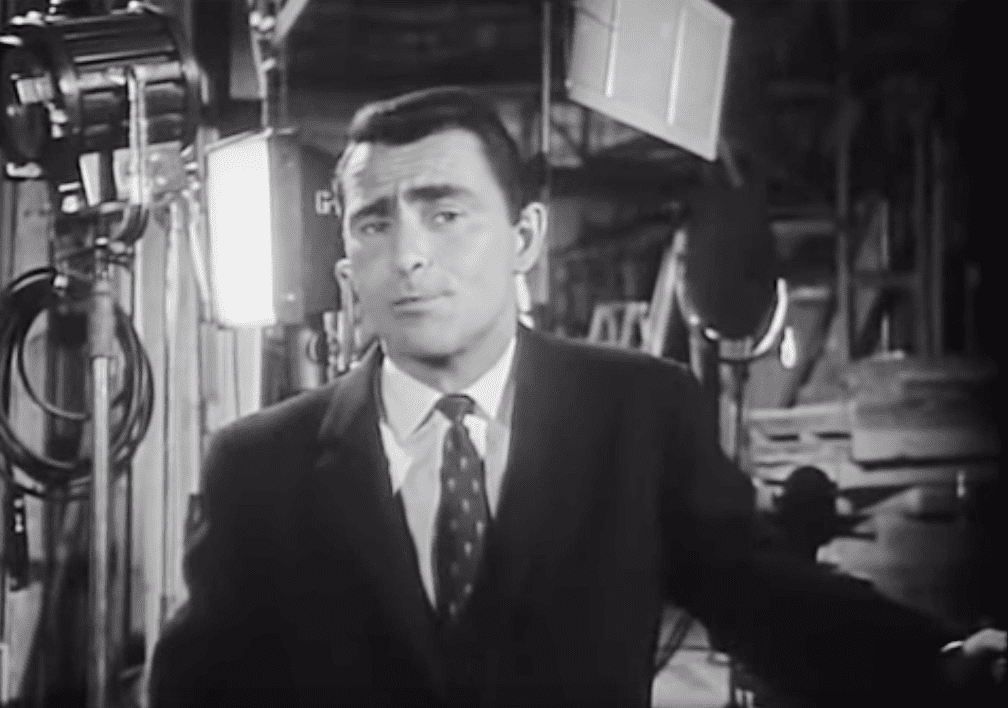 The Twilight Zone (1959-1964), CBS
The Twilight Zone (1959-1964), CBS
36. Sellout
In 1969, Serling was offered the title of executive producer and creative control over a new horror-thriller series titled Night Gallery. Reluctant to take on all that responsibility, Serling would turn that offer down, while still being involved as a writer and the host of the pilot. Serling would deeply regret this decision, as the short-lived series devolved into horror while also including comedy sketches—both directions he disagreed with. Serling was paid a hefty amount of money for his involvement in the series, but the experience reportedly depressed him.
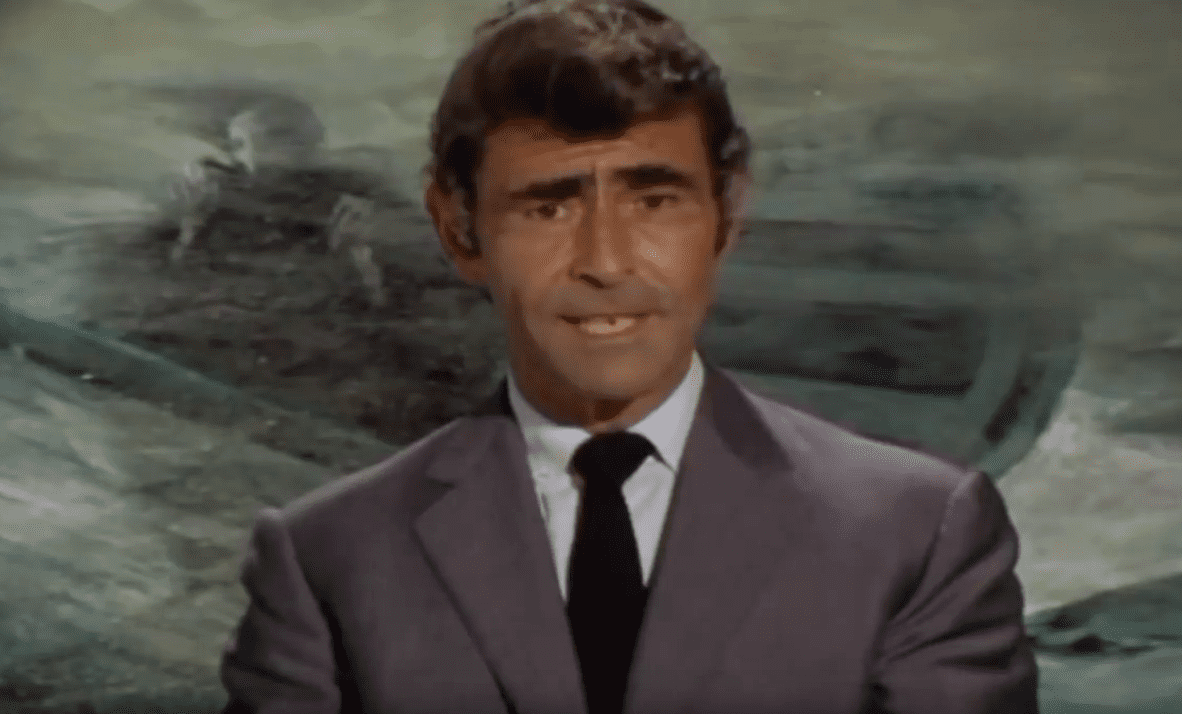 Night Gallery(1969–1973), Universal Television
Night Gallery(1969–1973), Universal Television
37. It's Not Fair!
Of the many episodes of The Twilight Zone that Serling personally wrote, he was naturally asked which ones he liked best. According to him, his favorite was “Time Enough at Last,” the episode which involved the bookworm who finally has time to read all the books he wants. However, Serling also pointed out what he thought was the most important episode he’d ever written for The Twilight Zone. That honor went to “He’s Alive,” an episode critical of Fascism.
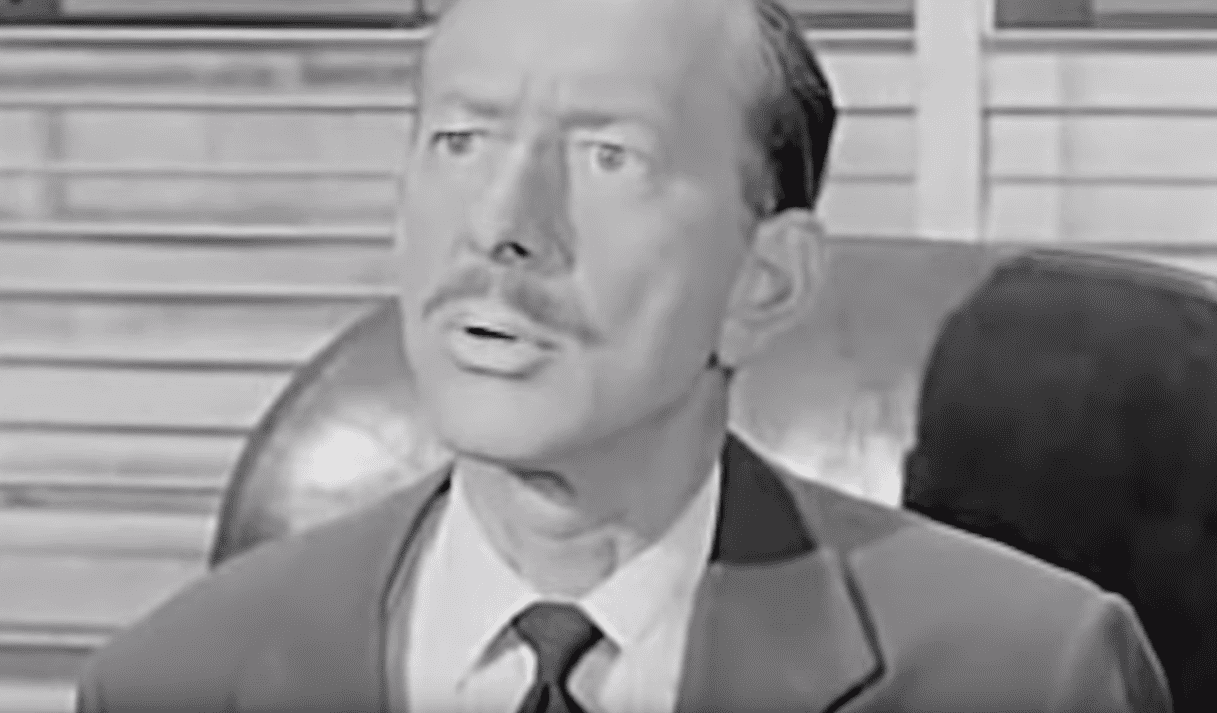 The Twilight Zone (1959-1964), CBS
The Twilight Zone (1959-1964), CBS
38. Taken Before His Time
In 1975, Serling was taken to the hospital for open-heart surgery after he suffered two heart attacks within a month. The operation was highly risky and meant to last up to ten hours. However, the operation was cut short when Serling’s heart suffered a third attack while he was on the operating table. He died two days later at the age of 50.
39. Don’t Forget to Convert That 1940s Currency!
Serling found a rather scary way to earn money while he was studying at Antioch College. The US Air Force needed people to help them test parachutes for safety reasons, and Serling did so part-time. While he was normally paid $50 per jump, the paychecks increased with the risks. In one incident, a particularly risky jump led to him being paid $500 (half before the jump, and half after, if he survived). In another instance, Serling volunteered to test a jet ejection seat which had killed three testers before him! Understandably, that test came with a $1,000 paycheck.
 American Masters (TV Series) Rod Serling: Submitted for Your Approval (1995), PBS
American Masters (TV Series) Rod Serling: Submitted for Your Approval (1995), PBS
40. Better Than a Reboot
In 2019, a new version of The Twilight Zone premiered on television. Although Serling continues to be credited as the show’s creator, the new series is hosted by filmmaker Jordan Peele (a fitting choice, given his horror films Get Out and Us). As of early April 2019, the series has opened to very positive reviews and features talented performances by Adam Scott, Kumail Nanjiani, Tracy Morgan, and Katie Findlay, among others. No doubt Serling would be proud!
41. I’m Still There in My Head
Due to his time fighting in the Second World War, Serling suffered from flashbacks and nightmares for the rest of his life. Nowadays, this would be diagnosed as post-traumatic stress disorder, but it wasn’t as fully understood in Serling’s lifetime. According to Sterling himself, it was his trauma from the war which was a driving force behind his writing career, as he saw writing as a form of therapy for him to cope with his memories.
 American Masters (TV Series) Rod Serling: Submitted for Your Approval (1995), PBS
American Masters (TV Series) Rod Serling: Submitted for Your Approval (1995), PBS
42. Visiting the Philippines Didn’t Go How I’d Hoped
Most of Serling’s active combat duty during the Second World War took place in the Philippines. While he was there, he was transferred to the 511th’s demolition platoon. Due to the appalling casualties that this platoon suffered, it was given the nickname “The Death Squad.”
43. What Fresh Hell is This?
One of the bloodiest battles in which Serling took part was the American march to take Manila from the Japanese. Serling himself was badly wounded by an antiaircraft gun which also killed three of his brothers-in-arms. In total, Serling’s platoon suffered a 50% casualty rate before the fighting was finished.
44. Is That Irony?
One moment of the war which shaped Serling’s life forever occurred when his platoon was resting while on patrol in the Philippines. A fellow soldier named Melvin Levy began a comedy routine to entertain his brothers-in-arms. In a horrific accident, Levy was decapitated by a food crate that had been dropped on their location by one of their own planes. This example of the sheer randomness of death would shape Serling’s writing for the rest of his life.
 American Masters (TV Series) Rod Serling: Submitted for Your Approval (1995), PBS
American Masters (TV Series) Rod Serling: Submitted for Your Approval (1995), PBS
45. Oops…
In 1966, Serling wrote the screenplay for a made-for-television movie titled The Doomsday Flight. The story followed a bomb being placed on a plane, and if the plane descended below a certain height without any ransom money having been paid, it would explode. As well as being a highly rated TV movie, The Doomsday Flight had a more chilling aspect to its legacy: The plot inspired several copycats to attempt that very thing which the movie was about! Serling would deeply regret writing the film because of that.
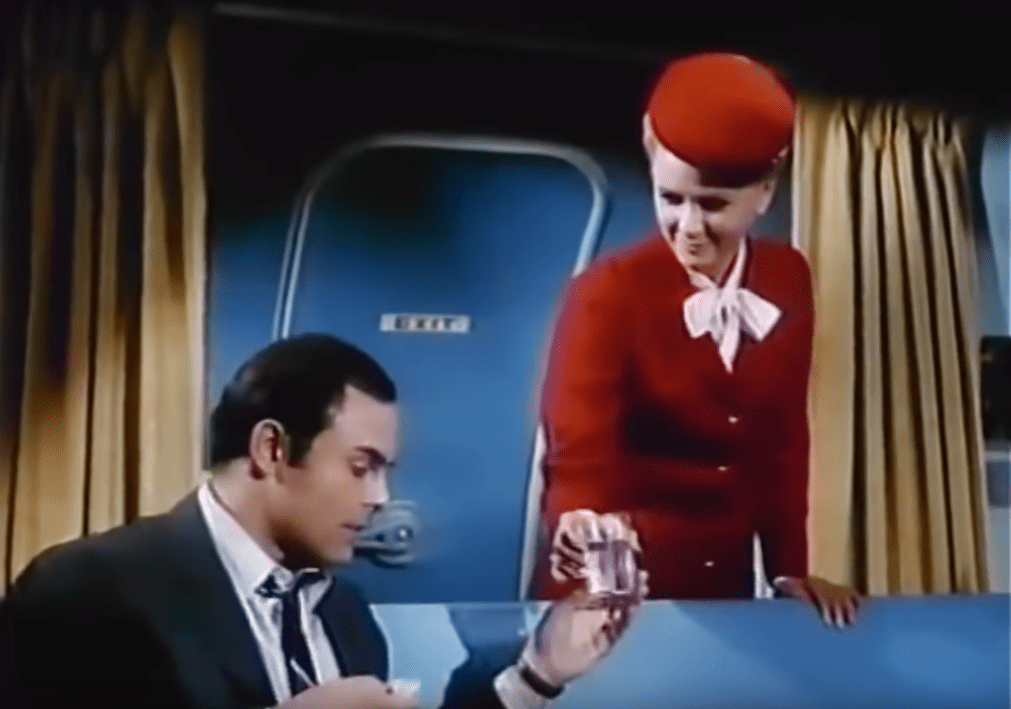 The Doomsday Flight(1966), Universal Television
The Doomsday Flight(1966), Universal Television

